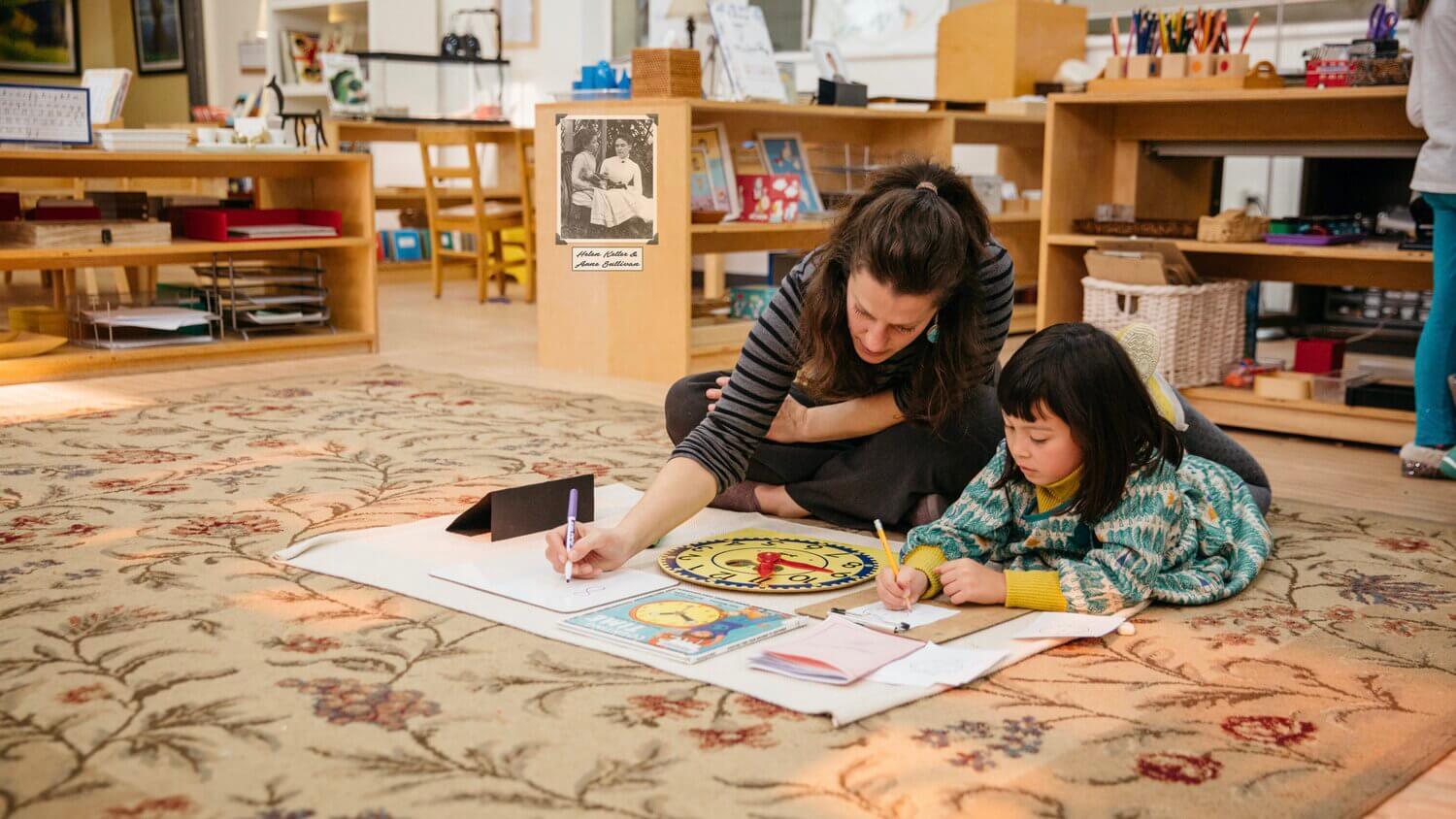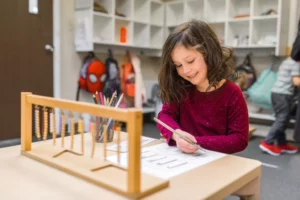Choosing Montessori education for your kid would be a great option. But the question comes what is the Montessori approach?
Montessori is a teaching method that emphasizes self-directed activity, hands-on learning, and cooperative play. Children in Montessori classrooms make creative choices in their learning, while the classroom and the highly educated teacher assist them through the process with age-appropriate activities.
Montessori education makes your child learn different important skills.
One of the most important skills a kid can learn is problem-solving and critical thinking. They lay the groundwork for
- a) decision-making,
- b) logical reasoning,
- c) categorization,
- d) analytical thinking,
- e) bargaining and creativity in children.
The key to developing problem-solving and higher-order processing skills in kids is to provide them with a nurturing environment that is rich in appropriately challenging activities. Here in this blog, we have mentioned problem-solving skills for kids that you must go through:
Name the problem:
Give a child the language to say what they find difficult if you notice them struggle with an activity.
After you’ve named the problem, ask a provoking question to urge them to take the next step toward solving it.
“That seems like a big spill of water,” you may comment if a toddler spilled water and couldn’t find a cloth to wipe it up. “How should we proceed?”
Answer with a question:
When a child asks a question, avoid the temptation to respond right away.
Consider how you may utilize their question to persuade them to take the next step.
For example; If a child asks, “Where are my shoes?” ask “What were you doing the last time you wore them?”
Prompting them with questions will urge them to go back and solve the problem on their own.
Use provoking questions like these to get you started:
- What are your thoughts on this?
- What do you believe will happen next?
- Which part is the most difficult for you?
- Is there another approach you could take?
- Have you considered it in this light?
- Where could we look for the solution?
Determine the appropriate level of difficulty:
Provide children with challenging activities, but not unattainable to help them develop problem-solving and critical thinking abilities.
Activities should be a little out of reach for the child and should take into account their developmental stage, skill level, and interests.
Instead of giving a counting task, you might introduce a kid who is interested in name writing to developmentally appropriate language materials.
An intriguing and demanding task will inspire perseverance and lead to problem-solving and critical thinking abilities rather than irritation and discouragement.
It is a Montessori approach that you should consider.
Slow down and stand back
We typically underestimate children’s abilities. Slowing down, taking a step back, and observing is sometimes all that is required.
Take the lead from the kid. Are they asking for assistance? Is it obvious that they’re upset? If not, give them the time and space they need to persist. They’ll figure out what they’ve learned on their own.
If a kid asks for assistance, provide only the bare minimum to get them to the next stage, rather than solving the problem for them.
If a kid is having trouble putting on their sweater correctly, teach them that the tag goes on the back and encourage them to try again.
Focus on effort
Focus on effort rather than an outcome to encourage the development of problem-solving skills.
“Good job!” and “You got everything correctly!” laud the result rather than the significant learning that took place.
It also pushes children to seek external validation rather than enjoying the process and seeing learning as a reward in and of itself.
Instead, use encouraging statements like “I see you’ve been working hard,” or “That looks difficult!” You put forth a lot of effort into it. “Perhaps we’ll try again tomorrow.”
Focusing on a child’s effort rather than the outcome pushes them to attempt new things.
All in all:
Teaching important skills to your kid at an early age is quite important. Being a parent it’s your responsibility that you choose the right method for that. Following the above-mentioned points will surely help you, and make it easy for the children to learn different problem-solving skills. Want to make your child more responsible with different problem-solving skills? Choose the best Montessori school and make learning fun for them! Teachers at Montessori schools know the importance of problem-solving skills and always give their best.










